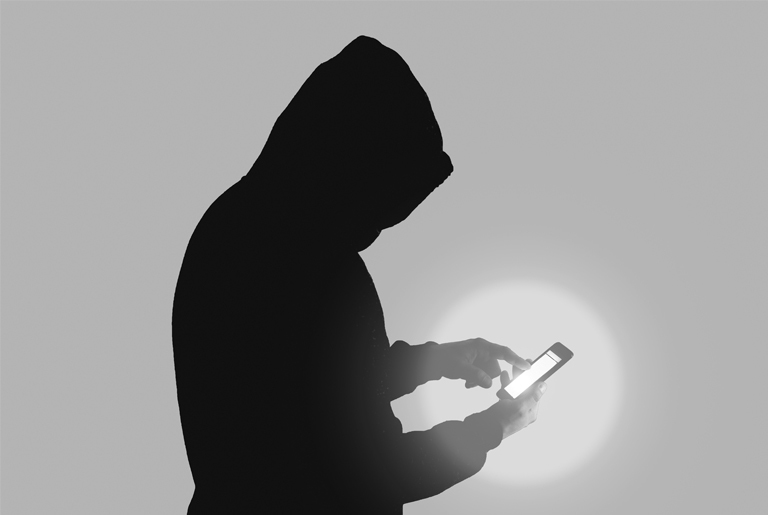John: “Hey babe. Can you send me a cute pic? You know what I mean.”
Liza: “Now? But I’m about to shower.”
John: “Perfect! And pleeaaaase!”
Liza: “Okay. Special pic just for you. 😉”
Liza loves John. She trusts him blindly. And she shares an intimate picture with him, only to find it circulating on social media soon after. Her world turned upside down, she calls John immediately. He says he knows nothing about it. Suddenly he remembers that he had to replace his phone the other day because the one with the ‘cute pic’ got left in a men’s room. What’s worse, it wasn’t password protected. What if someone had stolen Liza’s picture from his phone and circulated it on social media? It doesn’t matter. John could be charged with non-consensual distribution of intimate images. Even if he is innocent, he has to prove in court that the photos were shared accidentally.

Since March 2015, publication of intimate images of someone without their consent is considered a criminal offence. It is often referred to as ‘revenge porn’ in Canada. With the increasing use of social media and smartphones, this crime is on the rise and can have serious consequences for both victim and accused. If you have been charged with revenge porn or non-consensual pornography, here is what you should know.
What Is an Intimate Image?
Section 162.1 of the Criminal Code defines an ‘intimate image’ as a photographic, film or video recording involving explicit sexual activity, nudity or partial nudity. Sharing, distribution or selling of such content is considered illegal if:
- a) the depicted person is revealing his/her private parts (breasts, genitals, anal region) and/or is engaged in any sexual activity
- b) at the time of the recording, the circumstances called for a reasonable expectation of privacy (for example, a photo or video taken of a person when he or she is in the bedroom or bathroom)
- c) the person depicted retains a reasonable expectation of privacy at the time the offence is committed.
The accused may be convicted of non-consensual distribution of intimate images if he or she knows or is ignorant of the fact that the person depicted did not give consent to its public distribution. However, if the accused shared the photos or videos accidentally and/or wasn’t aware of the consequences, criminal charges may not be easy to prove.
What Is Revenge Porn and Why Does it Qualify as a Criminal Offence?
If someone shares an intimate/sexual picture or video with another person and believes that they have published, uploaded, distributed, transmitted, advertised, sold or made that content available to others in any other way without their permission, the crime is considered ‘revenge porn’, or non-consensual pornography and a criminal case against the offender may be filed. It is also illegal to distribute images or videos involving a minor, i.e. someone under the age of 18, regardless of whether consent was given.
The non-consensual circulation of intimate images and/or videos can occur in several circumstances involving adults and youth, including cyberbullying and relationship breakdown. Couples may exchange intimate photos for their personal use. But if the relationship ends, one partner may seek revenge on the other person by making the images public. They may do so by either providing the images to their ex-partner’s family, friends or employer, or by posting (and sharing) such images on the internet. While the mutual exchange of intimate images was consensual, the public distribution wasn’t.
Since social media is a fast-moving platform where everything gets circulated quickly, it can be difficult to recover and remove the images once online. The non-consensual circulation is a violation of the depicted person’s privacy, and the distribution is likely to harm one’s reputation, self-respect, credibility, professional life and future relationships. Sometimes the offender may have no personal grudge and does it with the intent to simply annoy or harass the victim.
What Are the Possible Penalties?
Depending on the severity of the crime, revenge porn can be prosecuted by either summary conviction or indictment. If the crime is considered minor and prosecuted by summary conviction, it can result in possible imprisonment of up to five months, followed by 12 months of probation and community service. If the crime is considered severe and is prosecuted by indictment, the maximum sentence is five years in prison.
In addition to any other penalty or condition that may be levied by the court, someone convicted of revenge porn may also be banned from using the internet or any other digital network for life.
Canada’s criminal justice system is carefully designed to ensure public safety by protecting society from those who might harm it. If you are charged with non-consensual dissemination of intimate images, proving yourself innocent won’t be easy. Hiring a criminal defence lawyer is a crucial first step in protecting your rights and building a strong defense strategy for your case.

